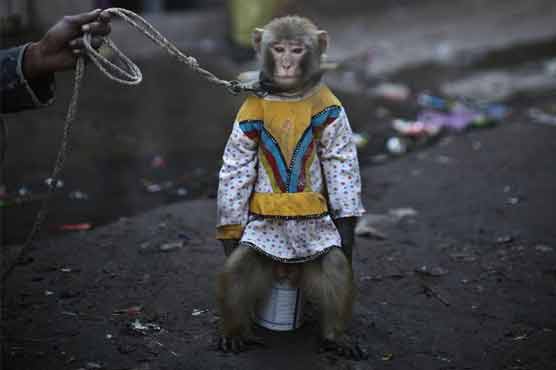Life of a trained monkey in Pakistan

Animal rights activists criticize the practice of training monkeys to perform.
RAWALPINDI (AP) — Performing monkeys are a common feature of life in many Pakistani cities where they can be seen doing tricks and entertaining people while dressed up in sparkly outfits and clothes.
For Pakistanis who raise and train the monkeys they are an important source of income in an impoverished country, and they form a strong bond with the animals. The monkeys are usually captured in the wild when they are babies and then trained. A trained monkey can fetch 20,000 to 30,000 rupees ($190 to $285).
One such trainer Ataullah Niazi, 46, owns three monkeys that he says he loves like they are his own children. His monkey can make around 500 rupees (about $5) a day, which helps him feed his family of eight. He's been doing this type of work since he was 11 years old.
It takes at least three months to train a monkey to dance, salute, shake hands and perform the other tricks needed, Niazi said. Usually the owners go to the northwestern Swat Valley or the town of Murree, outside of Islamabad, to find the babies.
But animal rights activists criticize the practice of training monkeys to perform.
"This is a sheer violation of wildlife laws," said Atif Yaqub, an official at the Pakistan Wildlife Foundation. He said the monkeys are often abused by trainers who beat them with a stick during their training and put a rope around their neck so they don't run away.

